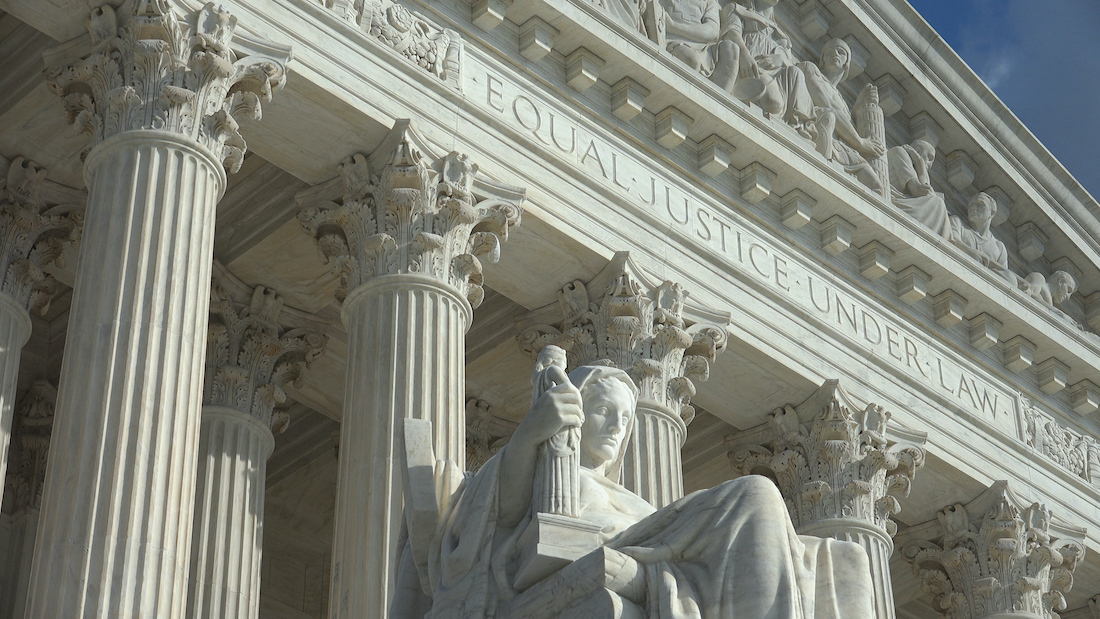To paraphrase an overrated writer, a spectre is haunting the United States – the spectre of religious repression in the name of stanching the coronavirus. The Supreme Court took a step toward exorcising that threat just before Thanksgiving.
Late Wednesday night, the justices ruled 5-4 to temporarily suspended the enforcement of New York Gov. Andrew Cuomo’s COVID-19 directives, which limit religious services to 10 people if the houses of worship are located in “red zones” or 25 people in “orange zones.” The governor’s directive treats religious believers as second-class citizens, subject to heavier government restrictions than a wide variety of secular businesses and organizations. “The regulations cannot be viewed as neutral because they single out houses of worship for especially harsh treatment,” the unsigned decision stated.
To pass constitutional muster, any government order restricting the unalienable freedom of religion must be “narrowly tailored” and serve a “compelling government interest.” However, the New York order is anything but narrowly tailored. It unduly restricts churches, synagogues, mosques, and temples by shrinking their congregation well below levels necessary to maintain public safety. For instance, two of the churches represented in the lawsuit can accommodate more than 1,000 people each, and one of the synagogues can hold 400 people; more than two dozen worshipers could easily fit inside while observing social distancing requirements.
“[E]ven in a pandemic, the Constitution cannot be put away and forgotten,” the decision held. “The restrictions at issue here, by effectively barring many from attending religious services, strike at the very heart of the First Amendment’s guarantee of religious liberty.”
The decision underscores the most salient issue at stake in these lawsuits and lockdowns: politicians’ indifference to people of faith and the role of religion in U.S. history. “The only explanation for treating religious places differently seems to be a judgment that what happens there just isn’t as ‘essential’ as what happens in secular spaces,” wrote Justice Neil Gorsuch in his masterful concurrence. “In recent months, certain other [g]overnors have issued similar edicts. At the flick of a pen, they have asserted the right to privilege restaurants, marijuana dispensaries, and casinos over churches, mosques, and temples.”
“That is exactly the kind of discrimination the First Amendment forbids,” he concluded.
Leaders in the Secular City do not consider the loss of worship especially grievous and have designed their orders to “perfectly align with secular convenience,” Justice Gorsuch wrote. Yet their faithful constituents bear a real burden. “Catholics who watch a Mass at home cannot receive communion, and there are important religious traditions in the Orthodox Jewish faith that require personal attendance,” the majority stated.
Gov. Cuomo’s religious restrictions not only discriminated against people of faith, they particularly targeted the Jewish community and contained an underreported, misogynistic provision. “Agudath Israel argues that the [g]overnor specifically targeted the Orthodox Jewish community and gerrymandered the boundaries of red and orange zones to ensure that heavily Orthodox areas were included,” the decision stated. Gov. Cuomo has certainly expressed his hostility to New York’s Orthodox Jewish community, blaming “their religious practices” for his state’s high infection rate. “Gov. Cuomo should have known that openly targeting Jews for a special COVID crackdown was never going to be constitutional,” said Eric Rassbach, vice president and senior counsel at the Becket Fund for Religious Liberty and counsel to the plaintiffs.
The orders doubly discriminated against Jewish women. Justice Goruch noted that “[i]n the Orthodox Jewish community that limit might operate to exclude all women, considering 10 men are necessary to establish a minyan, or a quorum.” In effect, Cuomo found a technicality that banned all Orthodox Jewish women from attending in-person synagogue services on the Sabbath. That stratagem is redolent of California Gov. Gavin Newsom’s church singing ban, which prohibits Eastern Orthodox Christians and Byzantine Catholics from celebrating the Divine Liturgy properly – or anyone from following the Apostle Paul’s injunction to worship the Lord with “psalms and hymns and spiritual songs.”
First Amendment litigators hailed the injunction as an important check on government’s ability to discriminate against or unduly burden the free exercise of faith. “This landmark decision will ensure that religious practices and religious institutions will be protected from government edicts that do not treat religion with the respect demanded by the Constitution,” said Avi Schick, an attorney for Agudath Israel of America. Kelly Shackelford of the First Liberty Institute hoped other politicians will understand that “government officials may not abuse their emergency powers to discriminate against Americans of faith.” And they hope other states will take this decision as a warning. “In light of this ruling, we call on all elected officials to amend any religious discriminatory orders,” said Alliance Defending Freedom Senior Counsel Ryan Tucker.
Yet it is unclear that the ruling has caused Gov. Cuomo to reconsider his exclusionary and discriminatory use of government power to prohibit the constitutionally guaranteed free exercise of religion. “Why rule on a case that is moot and come up with a different decision than you did several months ago on the same issue?” Cuomo groused to reporters after the ruling. “You have a different court. And I think that was the statement that the court was making.”
If so, it is a message well worth sounding. As Justice Gorsuch wrote in his concurrence “[W]e may not shelter in place when the Constitution is under attack. Things never go well when we do.”
“Nothing is more dreaded than the National Government meddling with Religion,” John Adams wrote to Benjamin Rush. This decision reaffirmed the Founding Fathers’ spirit and our nation’s unique genius.
The case, Roman Catholic Diocese of Brooklyn v. Cuomo, represents a concerted, ecumenical movement in favor of religious freedom. Its plaintiffs include the Roman Catholic Church and Agudath Israel of America, an Orthodox Jewish organization. The nation is richer for their cooperation.

